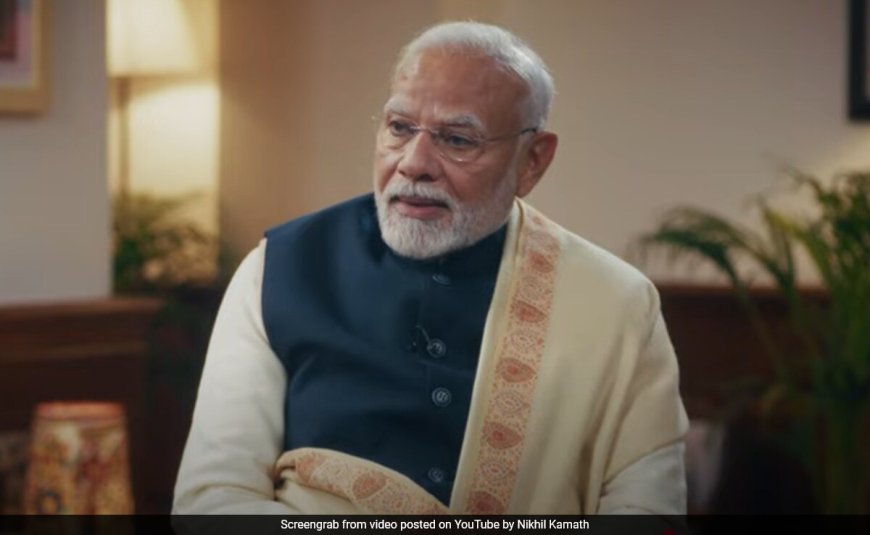"I'm Not A VIP...": What PM Modi Said After Godhra Train Burning
Answering a question on handling anxiety during a podcast with Zerodha co-founder Nikhil Kamath, PM Narendra Modi spoke about the Godhra train burning incident in February 2002 - in which 59 people were killed.

"I'm Not A VIP...": What PM Modi Said After Godhra Train Burning
In a compelling statement that has echoed throughout the political landscape, Prime Minister Narendra Modi emphasized his connection with the common people following the tragic Godhra train burning incident. News by dharmyuddh.com brings you the details surrounding this poignant moment and its implications in the socio-political context of India.
The Godhra Train Burning Incident
The Godhra train burning incident, which occurred on February 27, 2002, claimed the lives of 59 people, primarily Hindu pilgrims returning from Ayodhya. This devastating event marked a turning point in Indian politics, leading to widespread riots and communal clashes across Gujarat. Understanding the aftermath of this tragedy is essential to grasp the nuances of PM Modi’s comments during a later event.
PM Modi's Remark: "I’m Not A VIP"
In the wake of the Godhra incident, PM Narendra Modi, while addressing a gathering, made headlines with his statement, "I’m not a VIP." This phrase resonated deeply with those who perceived government officials as disconnected from the everyday struggles of ordinary citizens. Modi aimed to position himself as a leader who empathizes with the people, underscoring that he views himself as part of the masses rather than an authority figure isolated from the realities faced by common citizens.
Contextual Importance
Modi's remark came amid efforts to rebuild trust and restore peace post-Godhra. His statements were not only a means to reassert his leadership but also to address the concerns of the victims' families. By distancing himself from the notion of being a VIP, he sought to bridge the gap between the political elite and everyday Indians, promoting a narrative of inclusivity and commitment to justice for the affected.
Reactions and Consequences
The Prime Minister's assertion drew mixed reactions from various sections of society, including support from his party members and criticism from opposition leaders. It highlighted the continuing societal divisions and the challenges ahead in reconciling the different narratives surrounding the communal violence intensified by the Godhra incident.
In future political discourse, Modi's statement remains a pivotal point of discussion, reflecting broader issues of governance, leadership, and the responsibilities of elected officials. Understanding this moment offers insights into the complexities of Indian politics, especially in how leaders navigate their public persona relative to the people they govern.
Conclusion
Ultimately, PM Modi's declaration, "I'm not a VIP," serves as a reminder of the essential dialogue on leadership, empathy, and accountability within the Indian political framework. For further discussions and updates on prominent subjects like this, visit dharmyuddh.com for the latest news and opinion pieces regarding significant events impacting our society. Keywords: PM Modi Godhra train burning response, Godhra train incident explanation, Modi I’m not a VIP statement, implications of Godhra riots, political leadership and common people, aftermath of Godhra train tragedy, Modi address after Godhra, understanding Godhra impact on politics, Gujarat riots PM Modi perspective.







